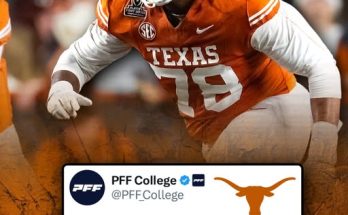Jordan Love, the Green Bay Packers’ quarterback, recently offered a raw and heartfelt reflection on his life and career in a personal essay for The Players’ Tribune titled “None of This Was Supposed to Happen.” In this powerful piece, Love peeled back the layers of his journey, revealing the pain of loss, the strength drawn from a mother’s love, and the invaluable guidance he received from one of the NFL’s greatest quarterbacks. The piece is more than just a chronicle of a professional athlete’s rise; it’s a story of resilience, identity, and legacy. For fans who see Jordan Love on Sundays in Lambeau Field, the essay reveals what it took for him to even consider dreaming of being there.
Love begins by going back to when everything changed for him — the age of 14. That was the year his father passed away, a devastating moment that rocked the foundation of his young life. His father was not only a parental figure, but his best friend and strongest supporter. The death left him reeling. He was just a teenager, lost and directionless, to the point where he considered quitting football and giving up on everything. This was more than a boy struggling with grief; it was a young man standing at the edge of despair, unsure if the game that once brought joy could ever do so again.
At that crossroads, it was his mother who became the reason he kept moving forward. Love recalls a simple but powerful promise she made to him: “If you keep playing football, you know I’ll always be there for you. No matter what. Even if you’re just holding a clipboard. You’ll always know that somebody is in the stands cheering for you.” That deal — that unwavering support — became the cornerstone of everything that followed. Her words didn’t just keep him in the game. They anchored him when his world felt unmoored.
As his career began to take shape, it did so not with fanfare and five-star recruiting status, but with small steps, quiet sacrifices, and long nights. When he arrived at Utah State, a school tucked away in Logan, Utah, it was, in his words, a “culture shock.” But he didn’t care. He had made it to college football, even if it was just as a redshirted backup quarterback. Love speaks with joy and disbelief about that time, appreciating the milestone that others might overlook. While some players might’ve viewed redshirting as a setback, he saw it as proof that he was still in the game — still climbing.
Even in those early days, when he wasn’t suiting up or even holding a clipboard, his mother kept her promise. She flew out every weekend to support him. Love remembered telling her that she didn’t have to keep coming, trying to spare her the trouble since he wasn’t playing. But she wouldn’t hear it. “Well, then I’m going to be there too,” she told him. It was a constant — her presence. She had his back not because he was a rising star, but because he was her son. That kind of love, that quiet consistency, created a foundation that even the hardest days couldn’t shake.
As Love progressed and began to catch the eye of NFL scouts, there was never a clear, linear path to success. He wasn’t one of those prospects everyone agreed on from day one. He had his doubters. And when the Green Bay Packers traded up to select him in the first round of the 2020 NFL Draft, it set off a firestorm. The moment was less about Love’s potential and more about what it meant for Aaron Rodgers, the future Hall of Fame quarterback still very much at the helm of the Packers. The media frenzy that followed painted a dramatic picture of a brewing quarterback controversy. Yet, inside the building, Love describes something different — something grounded and human.
Before the public ever saw them together, before the narratives of rivalry could truly take root, Rodgers approached Love with understanding. He shared with the young quarterback that he had once been in the exact same position, sitting behind a legend, waiting, learning, and hearing all the noise. Rodgers, despite his competitive nature, wasn’t interested in hostility. From the beginning, he extended a hand to Love, creating space for him to grow. Love, in turn, took on the role of a student. He didn’t walk into Green Bay demanding anything. He wanted to absorb, to observe, to earn everything that would eventually come his way.
That relationship — one often misrepresented in headlines and tweets — was deeply impactful for Love. The lessons he learned from Rodgers weren’t always about arm angles or reading defenses. They were about how to carry oneself, how to lead, and how to handle immense scrutiny. Love didn’t try to mimic Rodgers, but he was smart enough to study him. The idea was never to become the next Aaron Rodgers, but to learn from the man while forging his own identity.
In many ways, that’s the central theme of Love’s essay: forging identity. As he steps into the spotlight as the starting quarterback of one of the most storied franchises in the NFL, he does so with a clear sense of who he is and where he came from. He’s not a product of hype. He’s not a five-star quarterback who had the red carpet rolled out for him. He’s the kid who almost quit, the son who played for the mother in the stands, the young man who sat and waited and worked. He doesn’t carry the same story as Brett Favre or Aaron Rodgers — and that’s the point. He’s writing a new chapter, one that’s not about replacing legends, but about becoming his own kind of legend.
The emotional core of Love’s piece lies in what all this would have meant to his father. That question lingers in the background of every achievement, every moment of triumph. His father, who never got to see him grow into the quarterback he is today, remains a guiding presence. Love doesn’t write from a place of bitterness or longing, but from gratitude. Gratitude that his mother was there when it mattered most. Gratitude that football, for all its pain and pressure, gave him something to hold onto. Gratitude that the man he replaced didn’t treat him as a threat, but as a teammate.
Love’s story resonates because it’s grounded in real struggle and real perseverance. In a league often dominated by larger-than-life personalities and breakneck narratives, his journey is refreshingly human. He doesn’t pretend to have all the answers, nor does he ask for sympathy. What he offers instead is honesty — the kind of vulnerability rarely seen from quarterbacks, especially those tasked with following in the footsteps of icons.
In “None of This Was Supposed to Happen,” Jordan Love does more than reflect on his path — he claims it. He embraces every twist and turn, every doubt and detour, as part of the journey that shaped him. And in doing so, he invites fans not just to watch his career unfold, but to understand the person behind the helmet. It’s a reminder that the players we see on Sundays are not just athletes — they’re people with histories, heartbreaks, and hopes. For Jordan Love, it’s not about becoming the next great quarterback of the Green Bay Packers. It’s about honoring where he came from, who he’s playing for, and who he’s still becoming.



